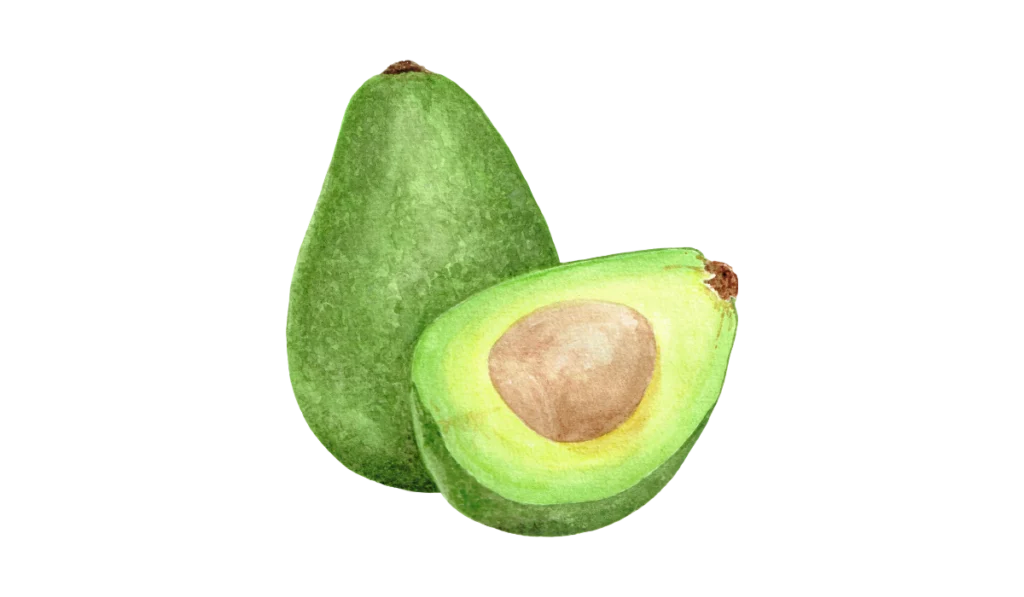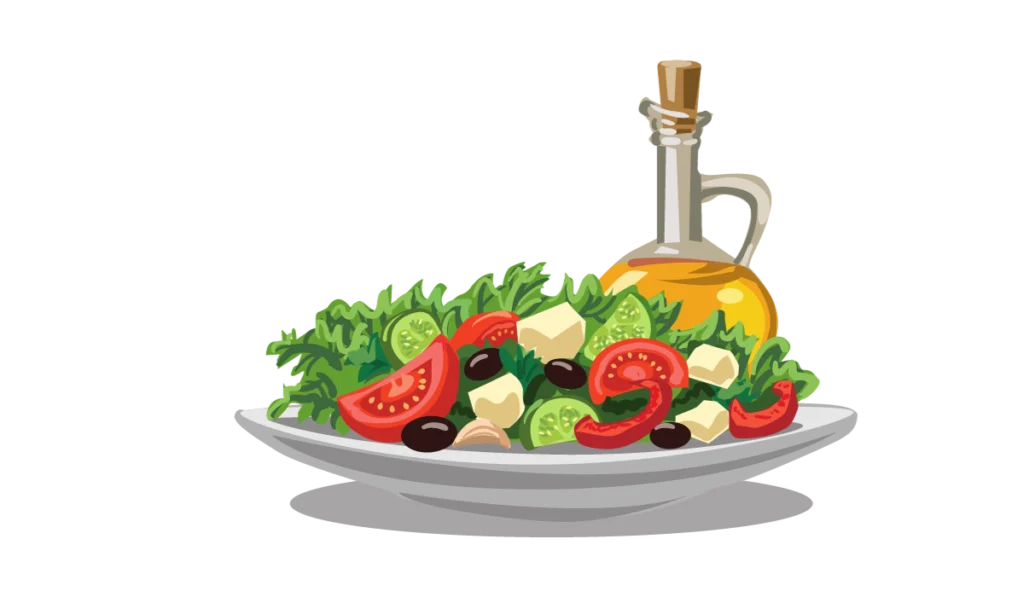Essential Plant-Based Fats for Optimal Gut Microbiota
Discover the essential plant-based fats that are key to optimal gut microbiota health. Learn how they support digestion, boost immunity, and more!

In This Article:
Key Points
- Plant-based fats, like those found in nuts and vegetable oils, have shown promising results in enhancing gut microbiota diversity and increasing the presence of beneficial bacteria.
- The Mediterranean diet, which is rich in plant-based fats and other healthy foods, has been associated with beneficial changes in gut microbiota and improved overall health.
- Avocados, in addition to being a source of plant-based fat, are rich in dietary fibers and may have a beneficial effect on gut microbiota.
- Olive oil, especially virgin olive oil with high polyphenol content, has been linked to reduced incidences of cardiovascular diseases, hypertension, and positive cognitive functions.
- More research is needed to fully understand the long-term effects of different types of fats on gut health.
Diet plays a crucial role in shaping gut microbiota, with numerous studies underscoring the importance of carbohydrates, especially fiber, in this process.
However, the impact of dietary fats on gut microbiota remains uncharted territory.
Not all fats are created equal.

Plant-based fats, derived from sources such as nuts and vegetable oils, have shown promising results in enhancing gut microbiota biodiversity, as demonstrated in both in vivo and in vitro studies.
Furthermore, dietary patterns rich in polyunsaturated and monounsaturated fats, akin to the Mediterranean diet, along with the inclusion of polyphenols and phytochemicals,
have been correlated with an increase in bacterial diversity and the presence of beneficial butyrate-producing bacteria.
These changes have been found to have a positive metabolic impact on the individual.
This article review amalgamates evidence on the positive alterations in gut microbiota brought about by plant-based fat sources and dietary patterns rich in vegetable fats,
as they play a vital role in modulating the intestinal microbiome, ultimately contributing to optimal health and well-being.
Introduction
Gut Health: How Diet Shapes Our Inner Universe
The profound relationship between gut microbiota and human health has evolved from a mere passive existence to an active metabolic organ with vast potential A Trusted Source Clemente JC, Ursell LK, Parfrey LW, Knight R. The impact of the gut microbiota on human health: an integrative view.Cell.(2012) 148:1258–70. doi: 10.1016/j.cell.2012.01.035 PubMed AbstractCrossRef Full TextGoogle Scholar.
Housing trillions of bacteria, our gastrointestinal tract significantly influences host metabolism and overall well-being.
The Power of Diet in Microbiota Modulation
A wealth of research underlines the impact of diet as a therapeutic target in reshaping gut microbiota A Trusted Source Conlon MA, Bird AR. The impact of diet and lifestyle on gut microbiota and human health.Nutrients.(2014) 7:17–44. doi: 10.3390/nu7010017 PubMed AbstractCrossRef Full TextGoogle Scholar.
Dietary fibers are vital for bacterial fermentation in the intestine, promoting a healthy microbial system A Trusted Source Hamaker BR, Tuncil YE. A perspective on the complexity of dietary fiber structures and their potential effect on the gut microbiota.J Mol Biol.(2014) 426:3838–50. doi: 10.1016/j.jmb.2014.07.028PubMed AbstractCrossRef Full TextGoogle Scholar.
However, the role of dietary fats and unabsorbed proteins as substrates for microbial metabolism remains underexplored, offering fertile ground for future investigations A Trusted Source Fava F, Gitau R, Griffin BA, Gibson GR, Tuohy KM, Lovegrove JA. The type and quantity of dietary fat and carbohydrate alter faecal microbiome and short-chain fatty acid excretion in a metabolic syndrome ‘at-risk’ population.Int J Obes.(2012) 37:216–23. doi: 10.1038/ijo.2012.33PubMed AbstractCrossRef Full TextGoogle Scholar.
Plant-Based Fat Divide: Plant-Based vs.Animal-Based Sources
Distinguishing the effects of plant-based and animal-based fats on gut microbiota is a relatively uncharted area.
High-fat diets are often linked with an increase in Firmicutes, affecting the balance of gut bacteria A Trusted Source Abulizi N, Quin C, Brown K, Chan YK, Gill SK, Gibson DL. Gut mucosal proteins and bacteriome are shaped by the saturation index of dietary lipids.Nutrients.(2019) 11:1–24. doi: 10.3390/nu11020418 PubMed AbstractCrossRef Full TextGoogle Scholar.
Plant-derived linoleic acid, for example, is utilized by gut microbes to produce conjugated linoleic acid, renowned for its health benefits including anti-inflammatory and anti-carcinogenic properties A Trusted Source O'Shea EF, Cotter PD, Stanton C, Ross RP, Hill C. Production of bioactive substances by intestinal bacteria as a basis for explaining probiotic mechanisms: bacteriocins and conjugated linoleic acid.Int J Food Microbiol.(2012) 152:189–205. doi: 10.1016/j.ijfoodmicro.2011.05.025 PubMed AbstractCrossRef Full TextGoogle Scholar.
Omega-3 fatty acids have also gained attention for their protective effects against inflammation, although their impact on microbiota regulation is still unclear A Trusted Source Telle-Hansen VH, Christensen JJ, Ulven SM, Holven KB. Does dietary fat affect inflammatory markers in overweight and obese individuals?—a review of randomized controlled trials from 2010 to 2016.Genes Nutr.(2017) 12:26. doi: 10.1186/s12263-017-0580-4 PubMed AbstractCrossRef Full TextGoogle Scholar.
The Role of Diet in Shaping Our Gut Microbiota
Long-term dietary habits play a pivotal role in determining our gut microbial profile, broadly categorized into two enterotypes: Prevotella enterotype, linked with carbohydrate-based
and vegetarian diets; and Bacteroides enterotype, associated with high-protein and animal product diets A Trusted Source Wu GD, Chen J, Hoffmann C, Bittinger K, Chen Y-Y, Keilbaugh SA, et al. Linking long-term dietary patterns with gut microbial enterotypes.Science.(2011) 334:105–8. doi: 10.1126/science.1208344 PubMed AbstractCrossRef Full TextGoogle Scholar.
The Verdict: Plant-Based Diets Triumph
A growing body of evidence supports plant-based diets, such as vegetarian, vegan, and Mediterranean diets, for their beneficial impacts on gut microbiota and overall health A Trusted Source 20. Martínez-González MA, Alfredo G, Miguel R-C. The Mediterranean diet and cardiovascular health.Circ Res.(2019) 124:779–98. doi: 10.1161/CIRCRESAHA.118.313348 PubMed AbstractCrossRef Full TextGoogle Scholar.
The Mediterranean Diet, rich in plant-based fats from olive oil and nuts, stands out as a healthy dietary choice, debunking the myth that high-fat foods like nuts and olive oil necessarily contribute to weight gain.
In fact, these fat sources have been associated with healthy metabolic profiles, thanks to their unique fat composition and bioactive molecule content A Trusted Source Bes-Rastrollo M, Sánchez-Villegas A, de la Fuente C, de Irala J, Martínez JA, Martínez-González MA. Olive oil consumption and weight change: the SUN prospective cohort study.Lipids.(2006) 41:249–56. doi: 10.1007/s11745-006-5094-6 PubMed AbstractCrossRef Full TextGoogle Scholar A Trsusted Source Hu FB. Plant-based foods and prevention of cardiovascular disease: an overview.Am J Clin Nutr.(2003) 78:544S–51. doi: 10.1093/ajcn/78.3.544S PubMed AbstractCrossRef Full TextGoogle Scholar.
Plant-Based Fats: A Preferred Choice for Gut Health

With numerous studies advocating the importance of dietary fat composition in modulating endotoxemia, it's high time we delve deep into the contrasting effects of animal and plant-based fats on our gut health A Trusted Source Mani V, Hollis JH, Gabler NK. Dietary oil composition differentially modulates intestinal endotoxin transport and postprandial endotoxemia.Nutr Metab.(2013) 10:6. doi: 10.1186/1743-7075-10-6 PubMed AbstractCrossRef Full TextGoogle Scholar.
Circulating endotoxins, primarily derived from gram-negative bacteria, are notorious for triggering inflammation.
Research shows that post-prandial serum endotoxin production is noticeably lower after consuming ω-3 polyunsaturated fatty acids (PUFAs) compared to saturated fatty acids (SFAs) A Trsusted Source Lyte JM, Gabler NK, Hollis JH. Postprandial serum endotoxin in healthy humans is modulated by dietary fat in a randomized, controlled, cross-over study.Lipids Health Dis.(2016) 15:186. doi: 10.1186/s12944-016-0357-6 PubMed AbstractCrossRef Full TextGoogle Scholar.
This unveils a crucial aspect of dietary fats - it's not the quantity, but the composition that holds the reins in maintaining a balanced gut microbiota.
Navigating the Maze of Fats and Proteins
Interestingly, animal products such as red meat and fish, sources of both fats and proteins, have a significant influence on gut health.
A study exploring different protein sources revealed that soy-based protein had higher circulating endotoxins compared to red or white meat sources A Trusted Source Zhu Y, Lin X, Zhao F, Shi X, Li H, Li Y, et al. Meat, dairy and plant proteins alter bacterial composition of rat gut bacteria.Sci Rep.(2015) 5:15220. doi: 10.1038/srep16546 CrossRef Full TextGoogle Scholar.
However, caution is advised when evaluating animal sources due to potential gut health-related issues arising from heme, N-nitroso compounds, polycyclic aromatic hydrocarbons, and heterocyclic amines found in meat products A Trusted Source Ollberding NJ, Wilkens LR, Henderson BE, Kolonel LN, Le Marchand L. Meat consumption, heterocyclic amines and colorectal cancer risk: the Multiethnic Cohort Study.Int J Cancer.(2012) 131:E1125–33. doi: 10.1002/ijc.27546 PubMed AbstractCrossRef Full TextGoogle Scholar.
The Vegetarian Path to a Healthy Gut
The burgeoning popularity of vegetarianism has fueled numerous studies exploring the differences in gut microbiota between plant-based and traditional diets A Trusted Source Zimmer J, Lange B, Frick J-S, Sauer H, Zimmermann K, Schwiertz A, et al. A vegan or vegetarian diet substantially alters the human colonic faecal microbiota.Eur J Clin Nutr.(2012) 66:53–60. doi: 10.1038/ejcn.2011.141PubMed AbstractCrossRef Full TextGoogle Scholar A Trusted Source Matijašić BB, Obermajer T, Lipoglavšek L, Grabnar I, Avguštin G, Rogelj I. Association of dietary type with fecal microbiota in vegetarians and omnivores in Slovenia.Eur J Nutr.(2014) 53:1051–64. doi: 10.1007/s00394-013-0607-6PubMed AbstractCrossRef Full TextGoogle Scholar.
With the wide array of fat sources available, it's intriguing to note that only a handful of studies have scrutinized their effects on gut microbiota.
Given the intricate nature of food, pinpointing the causal effect of a specific dietary component on gut homeostasis is no easy feat.
Nonetheless, when weighing the synergistic effects of food, plant-based fat sources rich in antioxidants and fibers emerge as a superior alternative to their animal-based counterparts laden with heme and nitroso compounds.
Nuts for Gut Health and Beyond
Nuts have been long touted for their numerous health benefits, from their ability to protect against metabolic disorders such as type 2 diabetes (T2D), dyslipidemia, and cardiovascular disease (CVD) A Trusted Source Liu G, Guasch-Ferré M, Hu Y, Li Y, Hu FB, Rimm EB, et al. Nut consumption in relation to cardiovascular disease incidence and mortality among patients with diabetes mellitus.Circ Res.(2019) 124:920–9. doi: 10.1161/CIRCRESAHA.118.314316 PubMed AbstractCrossRef Full TextGoogle Scholar.
However, the positive impacts of nuts go beyond their nutrient-rich profiles and antioxidant activities;
they also play a crucial role in modulating our gut microbiota, the community of microorganisms living in our digestive tracts.
A Nutritional Powerhouse for Gut Health
Nuts are packed with fiber, unsaturated fatty acids (UNFAs), and a range of bioactive compounds, including tocopherols, phytosterols, and phenolic compounds, as well as essential minerals such as magnesium A Trusted Source Ros E. Health benefits of nut consumption.Nutrients.(2010) 2:652–82. doi: 10.3390/nu2070652 PubMed AbstractCrossRef Full TextGoogle Scholar.
These nutrients, some of which can reach the colon intact, have the potential to significantly alter the composition and function of our gastrointestinal microbiota.
The fermentation of fiber and biotransformation of phytochemicals in nuts are linked to the promotion of a healthier microbiota, supporting the growth of beneficial bacteria and the production of beneficial end-products like butyric acid A Trusted Source Holscher HD. Dietary fiber and prebiotics and the gastrointestinal microbiota.Gut Microbes.(2017) 8:172–84. doi: 10.1080/19490976.2017.1290756 PubMed AbstractCrossRef Full TextGoogle Scholar efn_note] A Trusted Source Lamuel-Raventos RM, Onge MPS. Prebiotic nut compounds and human microbiota.Crit Rev Food Sci Nutr.(2017) 57:3154–63. doi: 10.1080/10408398.2015.1096763 PubMed AbstractCrossRef Full TextGoogle Scholar[/efn_note].
The Prebiotic Power of Fat
Interestingly, the fat content in nuts also plays a role in supporting gut health.
Some fats in nuts may reach the colon intact, serving as prebiotics that enrich potentially beneficial microorganisms such as Bifidobacteria or lactic acid bacteria A Trusted Source 36. Cassady BA, Hollis JH, Fulford AD, Considine RV, Mattes RD. Mastication of almonds: effects of lipid bioaccessibility, appetite, and hormone response.Am J Clin Nutr.(2009) 89:794–800. doi: 10.3945/ajcn.2008.26669 PubMed AbstractCrossRef Full TextGoogle Scholar A Trusted Source 37. Ellis PR, Kendall CWC, Ren Y, Parker C, Pacy JF, Waldron KW, et al. Role of cell walls in the bioaccessibility of lipids in almond seeds.Am J Clin Nutr.(2004) 80:604–13. doi: 10.1093/ajcn/80.3.604 PubMed AbstractCrossRef Full TextGoogle Scholar.

Different Nuts, Different Benefits
While all nuts have health-promoting properties, certain types stand out for their specific protective effects.
For instance, almonds, pistachios, and walnuts have been shown to modulate insulin resistance, glucose metabolism, and lipid profiles A Trusted Source 44. Hayes D, Angove MJ, Tucci J, Dennis C. Walnuts (Juglans regia) chemical composition and research in human health.Crit Rev Food Sci Nutr.(2016) 56:1231–41. doi: 10.1080/10408398.2012.760516 PubMed AbstractCrossRef Full TextGoogle Scholar.
Clinical trials have further revealed the prebiotic properties of these nuts, with studies demonstrating their ability to alter gut bacteria composition and support the growth of beneficial bacteria A Trusted Source Liu Z, Wang W, Huang G, Zhang W, Ni L.In vitroandin vivoevaluation of the prebiotic effect of raw and roasted almonds (Prunus amygdalus).J Sci Food Agric.(2016) 96:1836–43. doi: 10.1002/jsfa.7604 PubMed AbstractCrossRef Full TextGoogle Scholar.
In a notable study, Ukhanova et al.compared the effects of almonds and pistachios on gut microbiota in healthy subjects.
The researchers found that both types of nuts significantly affected the microbiota composition, with pistachios having a stronger prebiotic effect compared to almonds A Trusted Source Ukhanova M, Wang X, Baer DJ, Novotny JA, Fredborg M, Mai V. Effects of almond and pistachio consumption on gut microbiota composition in a randomized cross-over human feeding study.Br J Nutr.(2014) 111:2146–52. doi: 10.1017/S0007114514000385 PubMed AbstractCrossRef Full TextGoogle Scholar.
Another study found that pistachio consumption resulted in a shift toward a healthier gut microbiota in pre-diabetic subjects, as evidenced by changes in gut-derived metabolites in urine A Trusted Source Hernández-Alonso P, Cañueto D, Giardina S, Salas-Salvadó J, Cañellas N, Correig X, et al. Effect of pistachio consumption on the modulation of urinary gut microbiota-related metabolites in prediabetic subjects.J Nutr Biochem.(2017) 45:48–53. doi: 10.1016/j.jnutbio.2017.04.002 PubMed AbstractCrossRef Full TextGoogle Scholar.
The Future of Nuts and Gut Health Research
Despite the existing evidence on the benefits of nuts for gut health, more research is needed to fully understand the long-term effects of nut consumption on the microbiota, particularly in individuals with cardiometabolic diseases.
Additionally, future studies should investigate whether the modulations in gut microbiota associated with nut consumption are linked to improvements in other disease-related parameters A Trusted Source Gargari G, Deon V, Taverniti V, Gardana C, Denina M, Riso P, et al. Evidence of dysbiosis in the intestinal microbial ecosystem of children and adolescents with primary hyperlipidemia and the potential role of regular hazelnut intake.FEMS Microbiol Ecol.(2018) 94:fiy045. doi: 10.1093/femsec/fiy045 PubMed AbstractCrossRef Full TextGoogle Scholar.
The Surprising Connection Between Vegetable Oils and Gut Health
For years, we've heard about the health benefits of consuming vegetable oils.
But did you know that these oils can have a profound impact on your gut microbiota?
Let's delve into the fascinating world of fats and their relationship with our gut.
The Basics of Vegetable Oils and Health
Vegetable oils, primarily derived from plants, have been linked to positive metabolic conditions like reduced LDL cholesterol levels and a decreased risk of Type 2 Diabetes (T2D) and cardiovascular diseases (CVD) A Trusted Source McMacken M, Shah S. A plant-based diet for the prevention and treatment of type 2 diabetes.J Geriatr Cardiol.(2017) 14:342–54. doi: 10.11909/j.issn.1671-5411.2017.05.009 PubMed AbstractCrossRef Full TextGoogle Scholar efn_note] A Trusted Source Bray GA, Lovejoy JC, Smith SR, DeLany JP, Lefevre M, Hwang D, et al. The influence of different fats and fatty acids on obesity, insulin resistance and inflammation.J Nutr.(2018) 132:2488–91. doi: 10.1093/jn/132.9.2488 PubMed AbstractCrossRef Full TextGoogle Scholar[/efn_note].
One reason might be the type of fat, but another is the rich polyphenol content found in virgin olive oil A Trusted Source Galvão Cândido F, Xavier Valente F, da Silva LE, Gonçalves Leão Coelho O, Gouveia Peluzio MDC, Gonçalves Alfenas RC. Consumption of extra virgin olive oil improves body composition and blood pressure in women with excess body fat: a randomized, double-blinded, placebo-controlled clinical trial.Eur J Nutr.(2017) 57:2445–55. doi: 10.1007/s00394-017-1517-9 CrossRef Full TextGoogle Scholar.
However, the interaction between different fatty acids, especially omega-3 and omega-6, and inflammation is complex and not entirely understood A Trusted Source Patterson E, Wall R, Fitzgerald GF, Ross RP, Stanton C. Health implications of high dietary omega-6 polyunsaturated Fatty acids.J Nutr Metab.(2012) 2012:539426. doi: 10.1155/2012/539426 PubMed AbstractCrossRef Full TextGoogle Scholar A Trusted Source 65. Schmitz G, Ecker J. The opposing effects of n−3 and n−6 fatty acids.Prog Lipid Res.(2008) 47:147–55. doi: 10.1016/j.plipres.2007.12.004 PubMed AbstractCrossRef Full TextGoogle Scholar.

Avocados: More than Just Guacamole
This creamy fruit, apart from being a delicious source of plant-based fat, is also rich in dietary fibers.
Recent research hints that avocados might have a beneficial effect on our gut microbiota.
For instance, one study found that consumption of avocados increased certain beneficial fatty acids and the abundance of a helpful bacteria, Faecalibacterium, in feces A Trusted Source Thompson S, Edwards C, Reeser G, Khan N, Holscher H. Effects of avocado consumption on gastrointestinal microbial metabolite concentrations and taxa abundances: a randomized, controlled trial (OR23-07-19).Curr Dev Nutr.(2019) 3:nzz040.OR23-07-19. doi: 10.1093/cdn/nzz040.OR23-07-19 CrossRef Full TextGoogle Scholar.
Another study observed changes in specific bacterial groups and a trend towards reduced inflammation markers in participants consuming avocados A Trusted Source 67. Henning SM, Yang J, Woo SL, Lee R-P, Huang J, Rasmusen A, et al. Hass avocado inclusion in a weight-loss diet supported weight loss and altered gut microbiota: a 12-week randomized, parallel-controlled trial.Curr Dev Nutr.(2019) 3:nzz068. doi: 10.1093/cdn/nzz068 PubMed AbstractCrossRef Full TextGoogle Scholar.
Olive Oil: A Mediterranean Marvel
Olive oil, especially rich in MUFAs and polyphenols, has been linked to reduced incidences of CVDs, hypertension, and even positive cognitive functions A Trusted Source Guasch-Ferré M, Hu FB, Martínez-González MA, Fitó M, Bulló M, Estruch R, et al. Olive oil intake and risk of cardiovascular disease and mortality in the PREDIMED Study.BMC Med.(2014) 12:78. doi: 10.1186/1741-7015-12-78 PubMed AbstractCrossRef Full TextGoogle Scholar A Trusted Source Berr C, Portet F, Carriere I, Akbaraly TN, Feart C, Gourlet V, et al. Olive oil and cognition: results from the three-city study.Dement Geriatr Cogn Disord.(2009) 28:357–64. doi: 10.1159/000253483 PubMed AbstractCrossRef Full TextGoogle Scholar.
Interestingly, the type of olive oil matters.
Virgin olive oil boasts the highest polyphenol content, whereas refined olive oil has the least.
Even the fatty acid content can influence the gut microbiota.
Studies in mice revealed that the polyphenol content and fat profiles in olive oil both play a role in shaping our gut's microbial community A Trusted Source Hidalgo M, Prieto I, Abriouel H, Cobo A, Benomar N, Gálvez A, et al. Effect of virgin and refined olive oil consumption on gut microbiota. Comparison to butter.Food Res Int.(2014) 64:553–9. doi: 10.1016/j.foodres.2014.07.030 PubMed AbstractCrossRef Full TextGoogle Scholar.
Other Vegetable Oils and the Gut
Several other oils also contribute to our diet:
Palm and Coconut Oils: Both these oils are rich in SFAs
Studies suggest that palm oil can reduce microbial diversity in the gut, while virgin coconut oil has shown potential benefits for Type 2 Diabetes in mice A Trusted Source Djurasevic S, Bojic S, Nikolic B, Dimkic I, Todorovic Z, Djordjevic J, et al. Beneficial effect of virgin coconut oil on alloxan-induced diabetes and microbiota composition in rats.Plant Foods Hum Nutr.(2018) 73:295–301. doi: 10.1007/s11130-018-0689-7PubMed AbstractCrossRef Full TextGoogle Scholar.
Fish Oil vs. Soybean Oil: While fish oil has been praised for its health benefits, recent studies indicate potential inflammation risks due to changes in gut microbiota A Trusted Source Hotamisligil GS. Inflammation, metaflammation and immunometabolic disorders.Nature.(2017) 542:177–85. doi: 10.1038/nature21363 PubMed AbstractCrossRef Full TextGoogle Scholar.
On the other hand, vegetable fats like soybean oil might be more beneficial.
Flaxseed Oil: Rich in ω3 PUFAs, flaxseed oil has shown protection against certain liver conditions in mice.
It's also noted to influence gut microbiota, potentially ameliorating inflammation A Trusted Source 83. Zhang X, Wang H, Yin P, Fan H, Sun L, Liu Y. Flaxseed oil ameliorates alcoholic liver disease via anti-inflammation and modulating gut microbiota in mice.Lipids Health Dis.(2017) 16:1–10. doi: 10.1186/s12944-017-0431-8 PubMed AbstractCrossRef Full TextGoogle Scholar.
Canola Oil: Studies like the Canola Multicenter Intervention Trial aimed to understand the interactions between obesity and the intake of oils on the gut microbiome.
There were evident differences in gut microbiota profiles based on weight and the type of dietary fats consumed.
Mediterranean Diet: The Secret to a Healthy Gut Microbiota?
In recent times, the traditional view of single nutrient health effects has seen a significant shift,
leaning more towards the understanding of the synergy between various food components and dietary patterns A Trusted Source Jacobs DR, Tapsell LC. Food, not nutrients, is the fundamental unit in nutrition.Nutr Rev.(2007) 65:439–50. doi: 10.1111/j.1753-4887.2007.tb00269.x CrossRef Full TextGoogle Scholar.
Amidst this shift, the Mediterranean diet (MedDiet) stands out, offering a rich blend of nutrients that not only benefits general health but also positively influences gut microbiota.
The Plant-Based Advantage
A closer look at plant-based diets reveals their rising popularity, owing to the myriad of health benefits they offer A Trusted Source Clarys P, Deliens T, Huybrechts I, Deriemaeker P, Vanaelst B, De Keyzer W, et al. Comparison of nutritional quality of the vegan, vegetarian, semi-vegetarian, pesco-vegetarian and omnivorous diet.Nutrients.(2014) 6:1318–32. doi: 10.3390/nu6031318 PubMed AbstractCrossRef Full TextGoogle Scholar.

This is where the MedDiet shines, with its high content of mono-unsaturated fatty acids (MUFA) and poly-unsaturated fatty acids (PUFA) sourced primarily from plant sources, setting it apart from other plant-based diets that are typically low in total and saturated fats.
Unraveling the Benefits of the Mediterranean Diet
The MedDiet, characterized by its high consumption of vegetables, legumes, grains, fruits, nuts, and olive oil, coupled with moderate consumption of fish and wine, and low intake of red and processed meats,
has been proven to have positive effects on mortality rates and cardiovascular risks through various systematic reviews and meta-analyses A Trusted Source Schwingshackl L, Missbach B, König J, Hoffmann G. Adherence to a Mediterranean diet and risk of diabetes: a systematic review and meta-analysis.Public Health Nutr.(2015) 18:1292–9. doi: 10.1017/S1368980014001542 PubMed AbstractCrossRef Full TextGoogle Scholar.
The diet's richness in polyphenols, fiber, and unsaturated fat contributes to its health benefits through mechanisms such as anti-oxidative potentials, anti-inflammatory properties, and gut microbiota modulation A Trusted Source Tosti V, Bertozzi B, Fontana L. Health benefits of the mediterranean diet: metabolic and molecular mechanisms.J Gerontol Ser A.(2017) 73:318–26. doi: 10.1093/gerona/glx227 PubMed AbstractCrossRef Full TextGoogle Scholar.
Evidence-Based Findings on the Mediterranean Diet and Gut Microbiota
Studies have shown that high adherence to MedDiet is positively associated with beneficial changes in gut microbiome and their metabolites A Trusted Source Garcia-Mantrana I, Selma-Royo M, Alcantara C, Collado MC. Shifts on gut microbiota associated to mediterranean diet adherence and specific dietary intakes on general adult population.Front Microbiol.(2018) 9:890. doi: 10.3389/fmicb.2018.00890 PubMed AbstractCrossRef Full TextGoogle Scholar.
Conversely, low adherence to MedDiet correlates with higher levels of urinary trimethylamine N-oxide (TMAO), a microbial metabolite linked to cardiovascular risks A Trusted Source Tang WHW, Wang Z, Levison BS, Koeth RA, Britt EB, Fu X, et al. Intestinal microbial metabolism of phosphatidylcholine and cardiovascular risk.N Engl J Med.(2013) 368:1575–84. doi: 10.1056/NEJMoa1109400 PubMed AbstractCrossRef Full TextGoogle Scholar.
Further, the MedDiet enhances the presence of fiber-degrading Prevotella, Firmicutes, and a higher level of fecal short-chain fatty acids A Trusted Source De Filippis F, Pellegrini N, Vannini L, Jeffery IB, La Storia A, Laghi L, et al. High-level adherence to a Mediterranean diet beneficially impacts the gut microbiota and associated metabolome.Gut.(2016) 65:1812–21. doi: 10.1136/gutjnl-2015-309957 PubMed AbstractCrossRef Full TextGoogle Scholar.
A Comparative Analysis of the Mediterranean Diet and Other Diets
When comparing the MedDiet with other diets, interesting findings emerge.
A study comparing the MedDiet with a low-fat high complex carbohydrates diet (LFHCC) over a year revealed that the MedDiet resulted in an increase in beneficial Roseburia genus, whereas the LFHCC diet increased fiber-degrading Prevotella and F.prausnitzii A Trusted Source Haro C, Montes-Borrego M, Rangel-Zuniga OA, Alcala-Diaz JF, Gomez-Delgado F, Perez-Martinez P, et al. Two healthy diets modulate gut microbial community improving insulin sensitivity in a human obese population.J Clin Endocrinol Metab.(2016) 101:233–42. doi: 10.1210/jc.2015-3351 PubMed AbstractCrossRef Full TextGoogle Scholar.
Similarly, a comparison between the MedDiet and a vegan diet, Ma-Pi 2, showed no changes in gut microbial composition, though SCFA's in the Ma-Pi 2 diet group increased significantly from baseline to the 4th day A Trusted Source Quercia S, Turroni S, Fiori J, Soverini M, Rampelli S, Biagi E, et al. Gut microbiome response to short-term dietary interventions in reactive hypoglycemia subjects.Diabetes Metab Res Rev.(2017) 33:e2927. doi: 10.1002/dmrr.2927 PubMed AbstractCrossRef Full TextGoogle Scholar.
Addressing Metabolic Disorders through the Mediterranean Diet
Compromised gut bacterial profiles are common in people with metabolic disorders A Trusted Source Qin J, Li Y, Cai Z, Li S, Zhu J, Zhang F, et al. A metagenome-wide association study of gut microbiota in type 2 diabetes.Nature.(2012) 490:55–60. doi: 10.1038/nature11450 PubMed AbstractCrossRef Full TextGoogle Scholar.
Here, the MedDiet emerges as a potential nutritional therapy to reestablish a beneficial gut ecosystem.
For instance, in a study involving 239 participants, those in the MedDiet group showed a restoration of some species of gut microbiota (P.distasonis, B.thetaiotaomicron, F.prausnitzii, B.adolescentis, and B.longum) in individuals with metabolic syndrome (MetS) after two years of following the diet A Trusted SourceHaro C, Garcia-Carpintero S, Alcala-Diaz JF, Gomez-Delgado F, Delgado-Lista J, Perez-Martinez P, et al. The gut microbial community in metabolic syndrome patients is modified by diet.J Nutr Biochem.(2016) 27:27–31. doi: 10.1016/j.jnutbio.2015.08.011 PubMed AbstractCrossRef Full TextGoogle Scholar.
Furthermore, the MedDiet has proven effective in improving gut microbial ecology among Crohn's disease patients, increasing the Bacteroidetes phylum and Clostridium genus after 6 weeks of consumption A Trusted Source Marlow G, Ellett S, Ferguson IR, Zhu S, Karunasinghe N, Jesuthasan AC, et al. Transcriptomics to study the effect of a Mediterranean-inspired diet on inflammation in Crohn's disease patients.Hum Genomics.(2013) 7:24. doi: 10.1186/1479-7364-7-24 PubMed AbstractCrossRef Full TextGoogle Scholar.
Discussion
- The article highlights the importance of dietary fats in shaping gut microbiota, which is the community of microorganisms that live in the gastrointestinal tract.
- While the role of carbohydrates, especially fiber, in shaping gut microbiota is well-known, the impact of dietary fats is not well understood.
- Plant-based fats, derived from sources like nuts and vegetable oils, have shown promising results in enhancing gut microbiota diversity.
- The Mediterranean diet, which includes plant-based fats and other healthy foods, has been associated with beneficial changes in gut microbiota and improved overall health.
Conclusion
- Plant-based fats, such as those found in nuts and vegetable oils, play a vital role in modulating the gut microbiome and contributing to optimal health and well-being.
- The Mediterranean diet, with its emphasis on plant-based fats and other healthy foods, has been linked to positive changes in gut microbiota and improved health outcomes.
- Further research is needed to fully understand the long-term effects of different types of fats on gut health.
Review date not set.
How we reviewed this article:
Latest on:





